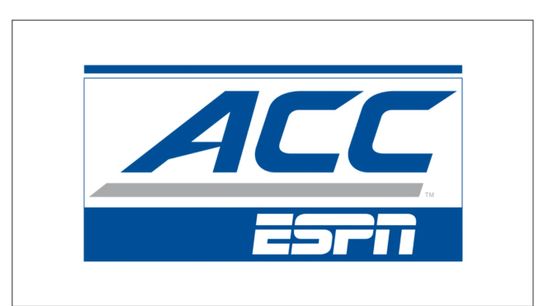In a crucial move for the Atlantic Coast Conference (ACC), ESPN has exercised its option to extend its broadcasting rights through 2036, sources confirmed to ESPN on Thursday. This decision secures the ACC’s television contract for the next decade, a move that could finally put an end to the conference’s ongoing legal battles with its top programs, Clemson and Florida State.
The agreement, a part of a 20-year deal signed in 2016 that helped launch the ACC Network, was initially set to expire after the 2027 season. ESPN’s decision to exercise the option ensures that the partnership will remain intact, solidifying the ACC’s future on a major media platform. However, the deal’s significance extends beyond just television broadcasts. The move marks a crucial step in addressing the financial concerns that have plagued the ACC, particularly for schools like Clemson and Florida State.
ESPN’s choice to extend the deal came after a vote by the ACC’s Board of Directors earlier this week, and while the network has declined to publicly comment on the decision, sources say that the conference is now focused on crafting additional “value adds.” These potential initiatives could bring more high-profile football and basketball matchups to the forefront, which would not only boost viewership but also provide an opportunity to revise the ACC’s revenue distribution model.
In particular, the ACC is leaning into its relationship with Notre Dame, with hopes of creating marquee matchups between the Irish and its most high-profile teams like Clemson and Florida State. Notre Dame’s Athletic Director, Pete Bevacqua, recently expressed an openness to increasing these games, a move that could significantly bolster the conference’s television appeal.
In addition to game scheduling, the ACC is working towards a new revenue distribution model that aims to appease schools like Clemson and Florida State, who have been vocal about financial disparities between the ACC and other conferences such as the Big Ten and SEC. These two powerhouse leagues signed lucrative media deals in recent years, leaving the ACC lagging behind. Under the proposed plan, a portion of the ACC’s television revenue would be placed into a “brand” fund, providing additional funds to the schools that generate the most revenue through football and basketball, such as Clemson, Florida State, Miami, and North Carolina.
This “brand” fund initiative is seen as a way to keep top-tier programs from bolting for wealthier conferences, and it comes as a direct response to the mounting pressure from Clemson and Florida State, which have both filed lawsuits against the conference in a bid to explore more lucrative opportunities. The schools’ legal actions have centered on the ACC’s current media deal, which is worth half as much as the Big Ten’s, putting them at a competitive disadvantage when it comes to national championships. For both schools, the future of their athletic programs hinges on closing the financial gap, and the ACC’s new distribution model may be the solution.
If the new model passes and a settlement is reached, Clemson and Florida State are expected to drop their lawsuits, signaling a resolution that could finally restore stability to the ACC. The deal’s success will also hinge on how the ACC addresses the exit penalties for teams that wish to leave the conference after 2031, when the current media deals for the Big Ten, SEC, and Big 12 are set to expire. Clemson and Florida State have made it clear that reducing these exit penalties is a non-negotiable part of any settlement.
While the ACC’s path forward seems clearer with the ESPN deal in place, the situation remains fluid. Negotiations are ongoing, and while a vote on the new distribution plan is not guaranteed to be unanimous, the consensus is that a more equitable share of revenue could be a necessary sacrifice for long-term stability. As one conference administrator put it, “A cut in distribution may be worthwhile if it means keeping the conference intact in these volatile times.”
This deal comes at a pivotal moment in the evolution of college athletics, as the shifting landscape of media rights, conference realignment, and player compensation continues to disrupt traditional models. With programs like Clemson and Florida State at the center of these debates, the resolution of this issue could have broader implications for how conferences and media giants like ESPN navigate the future of college sports.
The next step for the ACC is securing the final details of the new revenue distribution model, which is expected to provide much-needed relief to its most valuable programs. For now, however, the ESPN deal represents a significant victory for the conference, one that promises to bring continued stability as it navigates the challenges ahead.

